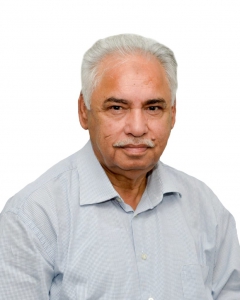USEFP is very proud to claim you as one of its Fulbright alumni. Can you tell us what led you to apply to the Fulbright program?
When I applied to the Fulbright program, there were only a few awards, especially senior fellowships for well-established professionals. Due to the scarcity of these awards and their repute, there was a lot of competition. I consider myself lucky to have met the rigorous selection standards for this fellowship in 2004. Moreover, as a biotechnologist, I was interested in working at Washington State University (WSU), on disease control for agricultural food products. WSU’s department of plant pathology is still considered one of the best in the world when it comes to work on control of wheat diseases, which is why I wanted to collaborate with the department on my work on wheat rusts.
How was your academic experience as a Fulbright post-doc at Washington State University?
My experience as a Fulbright fellow at WSU was a rewarding one on both personal and professional fronts. I was given the prestigious designation of Adjunct Scientist in the Department of Plant Pathology to participate in ongoing teaching and research activities. I was introduced to ongoing research in molecular genomics wheat rusts, which of course was the domain of my collaborator. In addition to my research activities, I also taught there at the undergraduate level. I found the people there to be extremely kind and helpful. In fact, even after all these years, I still keep in touch with many of my friends at WSU.
Can you share a memory that stands out in your Fulbright journey?
Weekends used to be the highlight of my time at WSU. I was owned by the Pullman community who helped me in grocery shopping, took me on outdoor expeditions, and invited me to every extracurricular activity there was. I can never forget the COUGAR soccer events on WSU grounds.
Other great memories related to my Fulbright experience are when, upon my return, I started actively participating in USEFP initiatives. We laid the foundation of Pakistan Fulbright Alumni and named it Pakistan National Association of Fulbright Alumni (PAKNAFA). I feel honored that I was the founder elected President of PKNAFA.
Any advice for returning Fulbright candidates who want to become positive agents of change like yourself?
My advice to returning Fulbrighters would be to keep a positive attitude and practice their professions with the intent to serve humanity.
